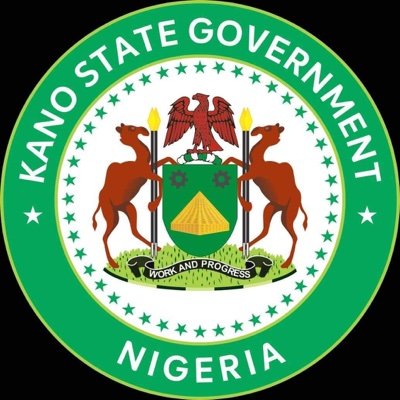* Opposes VAT increase, reduction in funding for TETfund, NASENI, NITDA
* Customs raises concerns on some conflicts in Section 23, 29, 41A of the Revenue Bill
*Reduce VAT rate back to 5% – says SCSN
By Citizenship Daily
The Kano state government, Wednesday, challenged the constitutionality of certain provisions of the tax reform bills, specifically those granting the federal government extensive powers over state and local tax authorities.
The position of the government was made known by the Permanent Secretary, office of the Secretary to the State Government, Alhaji Umar Mohammed Jalo at the public hearing on the tax reform bills organised by the House of Representatives Committee on Finance in Abuja.
The state government, therefore, called for the removal of provisions that grant the tax reform bill constitutional supremacy over other laws.
He said :”This clause is objectionable as it grants this bill a constitutional status similar to military rule, which cannot withstand the scrutiny of constitutional validity. The supremacy provision should be deleted.”
“These provisions are substantially in breach of the Constitution of the Federal Republic of Nigeria, 1999, as the National Assembly lacks the competence to legislate on matters exclusively affecting state and local governments”.
Yadudu also addressed the proposed reduction in funding for key national agencies, including TETFUND, NITDA, and NASENI, which are critical to Nigeria’s education, technology, and engineering sectors.
According to him, “Reducing funding to these strategic agencies will affect national interests in education, engineering, and information technology in adverse ways. TETFUND, NITDA and NASENI should continue to be funded to support the nation’s aspirations for technological advancement, prosperity, and sustainable development.”
He also expressed concern about the proposed value-added tax (VAT) increase, which would see rates rise from 7.5% to 15% by 2030. “Increasing the VAT rate at a time when Nigerians are facing an unprecedented cost-of-living crisis will create more difficulties for families and elevate their levels of vulnerability and deprivation,” the government warned.
To address these challenges, the Kano state government recommended improving tax collection efficiency rather than increasing VAT rates. “Available information suggests ample room for improvement in coverage and collection efficiency. Weak compliance accounts for a significant portion of the inefficiency,” he stated.
Despite these observations, the government expressed its support for fiscal reforms while highlighting key concerns regarding the federal hovernment’s ongoing tax system overhaul.
It stressed the pressing need to expand Nigeria’s fiscal capacity, noting that public revenues, currently at approximately 10% of GDP, are insufficient to address the nation’s mounting development challenges.
“The fiscal space needs to be enlarged,” the government noted. “Public revenues at approximately 10% of GDP are currently too small relative to the daunting challenges of development.
“A more auspicious fiscal space will provide tremendous opportunities for the governors to deliver on their promises, including achieving the Sustainable Development Goals (SDGs), reducing poverty, and rebuilding infrastructure for growth, wealth, and job creation.”
The Kano government welcomed the Federal Government’s efforts to reform the tax system, which they described as “long overdue,” and acknowledged that the current tax regime is overly complex and riddled with inefficiencies. “Despite past reforms, tax administration remains weak and plagued by inefficiency, poor governance, and corruption. Tax avoidance and evasion are prevalent and must be addressed.”
The state further praised the proposed harmonization of Nigeria’s multiple tax laws, stating, “Harmonisation will enhance clarity, compliance, and administrative efficiency. It will also ensure legislative cohesion and policy coherence.”
However, the government expressed strong reservations about the manner in which the reforms were being rushed through the National Assembly without sufficient stakeholder consultation. “The bills were apparently introduced with the utmost haste and without exhaustive stakeholder engagement,” the government stated.
“For any reform to be successful, social dialogue and effective communication are critical. The federal government should learn to consult more, to harvest ideas and diverse perspectives from its citizens.”
Kano also criticised the federal government’s failure to adequately communicate the potential benefits and costs of the reforms, and the vilification of Northern governors who opposed certain provisions of the bills.
“Northern State Governors who voiced their opposition to certain provisions of the bills were vilified and accused of ‘backward thinking’ and ‘parasitism.’ Citizens’ opposition to reforms must be addressed with civility, tact and diplomacy.”
Also making presentation, the Supreme Council for Shariah in Nigeria (SCSN) represented by its Secretary General, Nafiu Baba Ahmed raised concerns on five areas of the bills.
He said the SCSN wishes to bring to the attention of the National Assembly (Senate and House
of Representatives) the following concerns on specific Sections of Nigeria Tax Bill (NTB) and Nigeria Tax Administration Bill (NTAB).
“Reduce VAT rates back to 5% or in worst case scenario maintain the present 7.5 %. Section 146 of the Nigeria Tax Bill, 2024 should read that: “Subject to the provisions of part IV of chapter eight of this Act, VAT shall be charged
at 5% or 7.5% if necessary.’
“Delete S. 154(4) that requires “person whose supplies are chargeable to VAT at zero per cent, shall pay VAT on taxable supplies consumed in the production of its supplies, and may there after request for a refund of the VAT paid. “
“List of VAT Exempted Items S.190 of NTB should retain all VAT exempted items listed in Finance Act (2020).
“The Council wishes to recommend as follows: Expunge the Chapter on Development Levy covering Section 59 (1-5) of the NTB and revert to status quo by retaining the sources of funding for the three agencies as provided in their Acts.
“Delete the consequential amendments to Sections 1, 2 and 3(3) of the TETfund Act, 2011 proposed in Section 198(5) of the NTB. Similarly, delete the consequential amendments proposed in Section 198(4 & 6) of the NTB affecting Sections 12 (2a) and 16, and the Third Schedule of the NITDA Act 2007, and Sections 20(2) paragraphs b(i)
and b(ii) of the NASENI Act 2004.
“If the government retains the Chapter on Development Levy, retain Section 59(1) without (a-c), retain 59(2), retain 59(3) without (a-d), expunge 59(4), and retain 59(5), and share its revenue am ongst TETFund (60%). NITDA (15%), NASENI (15%), and the Student Education Loan Fund (109%).
“On Inheritance Tax Section 4 (3) of Chapter 2, Part 1 of the draft NTB provides that”. the income of a
family recognised under any law or custom in Nigeria as family income, in which several interests of individual members of the family cannot be separately determined, is taxable”.
Continuing, Ahmed said “The Council suggests as follows: Expunge Section 4(3) Part 1, Chapter 2 from the NTB entirely. Alternatively, retain Section 4(3) as Section 4(6)(2) and add a clause, Section 4(3)() to explain that the provision of 43)(a) has nothing to do with inheritance tax.
“The new clause should read as either of the following: In this Section, the reference to family income or howsoever called, shall not affect the operation of distribution of estate under the Personal Law of the deceased.
“Without prejudice to sub-section 3(a) above, family income shall not be construed directly or by necessary implication to include any inheritable property under the Personal Law of the deceased.”
On the Nigeria Tax Administrative bill,
“The Council suggests the following amendments to clarify the term “derivation” and address related concerns: Clearly define ” derivation” in the Bill as the location where actual consumption takes place, regardless of which office files the VAT returns.
“To provide clarification of VAT attribution, replace “supply or supplies” with “consumption and consumptions” in Chapter 6, Part 1, Sections 143, 144, 145, and 147 to attribute derivation tO consumption. Retain the current 20% share for derivation, attributed to the location of consumption.
“If adopting the 30% share for derivation suggested by the NGF, apply to only local VAT (55% of total VAT revenue according to information provided by the Presidential Committee), and share Customs and International VAl equaily-
(V) Include severe punitive measures in the bill against firms that falsify locational consumption-based VAT data, and FIRS personnel who collude with firms to manipulate or favour a particular location.
“Delete all the issues related to fiscalisation in the Bills until when the country is ready to implement them. Alternatively, add a 5-10-year moratorium clause on when the Sections relating to
fiscalisation will be implemented after approval is sought from the National Economic Council”
The Comptroller General Nigerian Customs Service, Adewale Adeniyi while presenting their stand on the bill, noted that its aim is to make Nigeria more business-friendly and competitive but raised concerns about potential jurisdictional conflicts.
He said :”Our concerns are laid out in a 17-page document, but key areas of conflict include Section 23, 29, and 41A of the Joint Revenue Bill,” said the representative. They pointed out that Section 162 of the bill essentially “legislates the Nigerian Customs Service out of existence.”
He further argued that while tax is a vital revenue-generating tool, customs duties go beyond fiscal policy to promote industrialization, prevent environmental pollution, and uphold public health.
“The UK experience is instructive,” the representative continued, referencing the 2005 merger of customs and tax functions in the UK, which was later reversed due to operational inefficiencies. “In 2012, the UK separated border control functions, acknowledging the distinct nature of customs operations.”
Referencing examples from African countries like Uganda and Ghana, where customs and tax authority integration initially resulted in higher tax-to-GDP ratios but later caused inefficiencies and operational complexities.
“With success stories like Morocco’s customs modernization, which increased revenue by 37% and reduced clearance times by 65%, Nigeria’s Customs Service argued for preserving its autonomy. In fact, the NCS noted that since the enactment of the NCS Act in 2023, Nigerian customs revenue had surged by 92%, and trade facilitation had markedly improved.
“We should encourage collaboration between customs and tax authorities, not abolish customs or repeal an existing law.”
Speaking for the Trade union Congress, the Secretary General Mr Nuhu Toro said : “The gradual increment of VAT from the current 7.5% to 15%. Mr. Chairman and respected members, the TUC unequivocally rejects this proposition.”
“Our reason is simple, allowing the VAT rate to remain at 7.5% is in the best interest of the nation. Increasing it would place an additional burden on Nigerians, many of whom are already struggling with their economic challenges and realities.
“At a time when inflation is on the rise, and unemployment is becoming an ever-growing concern, higher taxes will only further strain households and businesses alike. We must be mindful, Mr. Chairman, that such measures could slow down the economy.”








